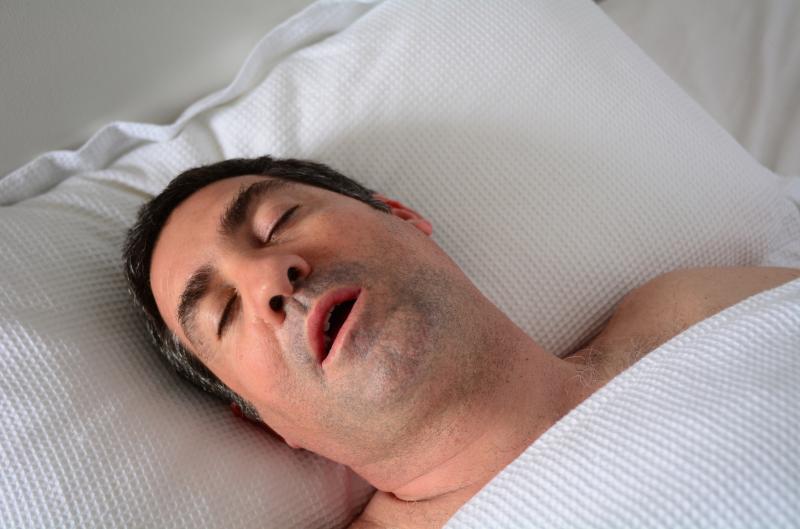
Among obstructive sleep apnoea (OSA) patients with cardiovascular disease (CVD), snoring is tied to greater risks of cerebral but not cardiac events, independent of OSA severity and continuous positive airway pressure (CPAP) treatment, according to data from the Sleep Apnea cardiovascular Endpoints (SAVE) trial.
Researchers conducted a posthoc analysis of the SAVE trial involving 2,687 OSA patients with established coronary or cerebral CVD who were randomly allocated to CPAP treatment plus usual care or usual care alone. The present analysis included 2,540 patients (94.5 percent) who had at least two measurements of frequency and loudness, and 2,590 patients (96.5 percent) who had at least two measurements of breathing pauses during follow-up (median, 3.5 years).
Patients who reported frequent snoring where more likely to be young, of Asian ethnicity, use tobacco, have a history of cerebrovascular disease, consume alcohol infrequently, and have higher diastolic blood pressure (BP) and apnoea-hypopnea index, among others.
Multivariable Cox proportional hazards model showed that the risk of primary composite CV outcome was associated with increased snoring frequency (adjusted hazard ratio [aHR], 1.10, 95 percent confidence interval [CI], 1.02–1.20; p=0.015), loudness (aHR, 1.16, 95 percent CI, 1.06–1.27; p=0.001), and breathing pauses (aHR, 1.16, 95 percent CI, 1.08–1.25; p<0.001) at any timepoint during follow-up.
Of note, the associations were driven by a higher incidence of cerebral rather than cardiac events, as well as positive interactions between the three snoring patterns for cerebral events. There was no significant interaction between CPAP treatment and snoring variables for cerebral events.
More studies are needed to elucidate the pathophysiology underlying snoring and stroke incidence, as well as trials investigating effective interventions for snoring in patients with OSA, according to the researchers.